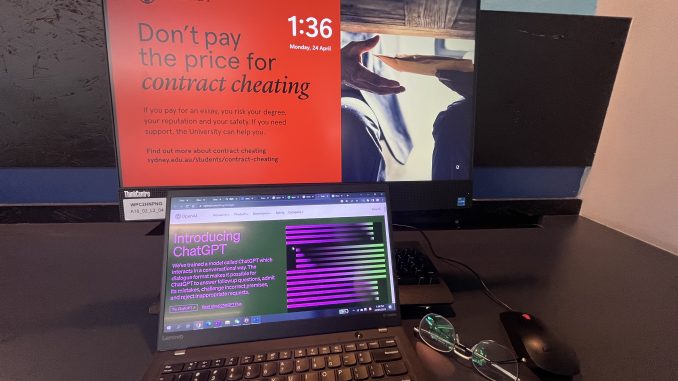
“Universities should ban ChatGPT, at least for now”.
My thought was reinforced when I saw countless ChatGPT screens light up in the library during the final of the semester. It is certain that ChatGPT is impacting university education in a not-so-good way. Many universities indicated that they are worrying about students using ChatGPT to plagiarise or cheat on exams. We should worry about this, just as much as we should worry about how ChatGPT will make students get dependent on using AI and lose their ability to do research independently. In other words, ChatGPT is ruining university education.
If you haven’t used ChatGPT, according to Open AI Master introduces, it is an AI chatbot that “uses Reinforcement Learning with Human Feedback (RLHF) model that allows AI to do self-learning from the human feedback”. Since March of this year, ChatGPT has become one of the most controversial topics in the world, and it now has about 100 million users, and it is the website that uses the shortest time to get this many users. Its trendy reasons are not only because of how powerful it is but also concern about the impact it can have on humanity. ChatGPT can nearly meet any requirement, from drafting an email to writing code. It can answer any questions as well, from maths problems to gossip news about celebrities. Some people also predict ChatGPT will replace human labour in many positions. However, faster than future unemployment growth is how ChatGPT will influence the education and students who are about to step into society.
Untrustworthy Chat Bot
Seems like ChatGPT can help users answer any questions, but it is not that trustworthy. In fact, ChatGPT will generate Fake academic resources for users. Many users reflect that some of the references that ChatGPT provides are nonexistent, or some of the references have mistakes on “year”, “chapter”, or “authors”, etc.
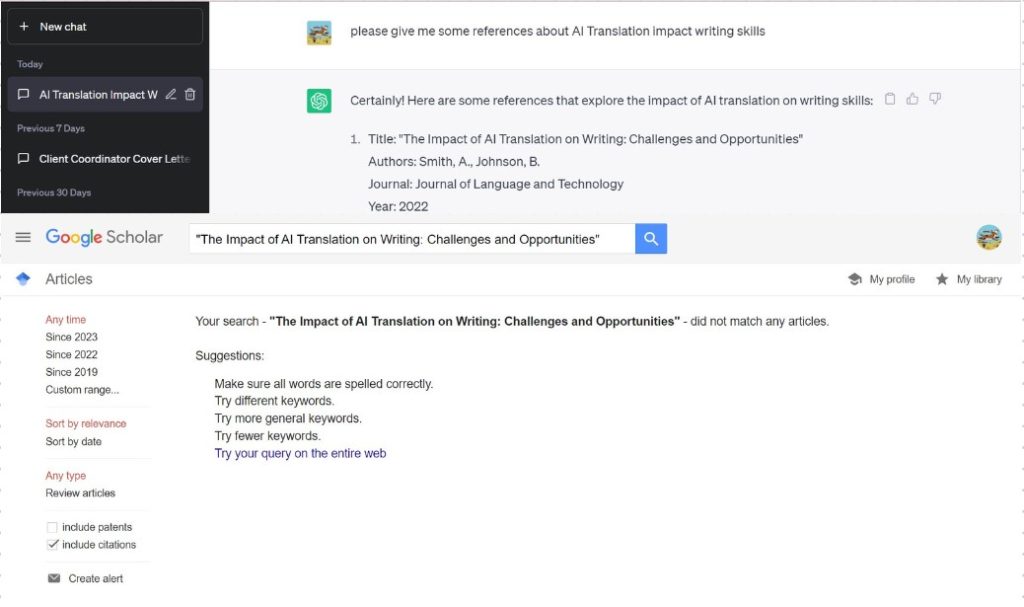
To see how many students have ever received made-up references on ChatGPT, I have conducted a survey of university students’ reflections on ChatGPT. It turns out that about 58% of students have received fake references from ChatGPT, while 26% of participants do not know whether the references are fake or not. Apparently, some students just copy references from ChatGPT and they do not test their correctness, which is a horrible truth. This chatbot will answer your questions, but it doesn’t promise correctness, much like the contract-writing that never cares about quality. Academic correctness, authenticity, and honesty are threatened by ChatGPT. Instead of spending time checking the correctness of references that ChatGPT provides, students may spend less time if they find references by themselves, at least they are real and existent.
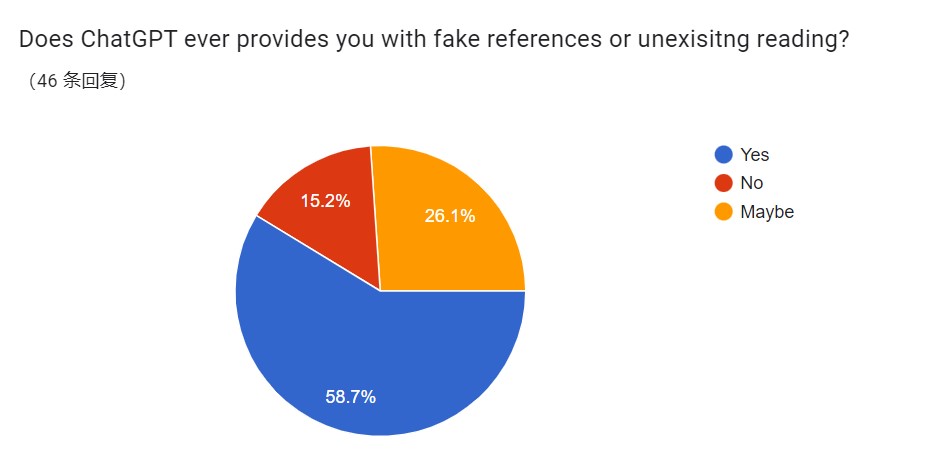
Reliance on AI
Although ChatGPT should not be used by students for their papers and exams because it is plagiarism and we cannot trust its correctness, a large number of students are growing dependent on it. According to some students’ interviews: “ChatGPT provides me with ideas on my essays, which saves me time struggling with my arguments”, also, some students claim that “as long as you don’t directly copy from ChatGPT’s answers, it is still your work”. Within these short 3 months, ChatGPT has gained many supporters. Within the survey, 56.5% of students think universities should suggest using ChatGPT in studies, while 32.6% of students think universities should prevent students from using ChatGPT. A large number of students share their opinions on universities’ treatment of ChatGPT, with similar meaning, they all agree that as long as students can reasonably use ChatGPT, ChatGPT is useful to their studies.
Does ChatGPT really help with study? During interviews with current university students, they reflect on different user experiences, however, they all mentioned that they habitually ask ChatGPT their assessment questions in the first place. Here is what they said:
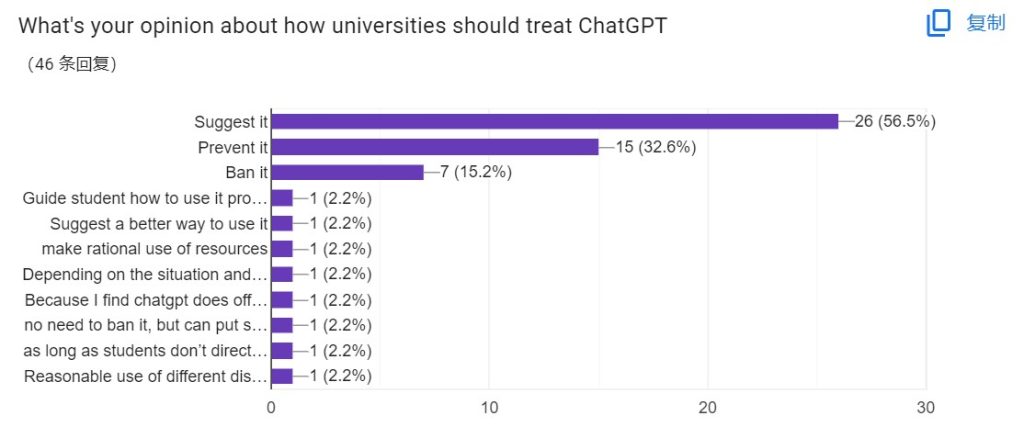
Sarah: Because I’m studying business analytics, I usually ask ChatGPT to summarise a report for me. But the free version does not connect to the Internet, and they do not have the data after 2021. This sometimes really wastes my time, but I will still ask ChatGPT the next time.
Jeff: ChatGPT is really good at solving maths questions, so when I meet questions that I don’t know, I will directly open ChatGPT and ask. It saves time, especially when the due date comes.
Patrick: I use ChatGPT to find academic articles, but it turns out that it is not that efficient. I often find that articles that ChatGPT provides do not exist, and at last, I still need to find them by myself. Also, I have asked ChatGPT to provide me with some arguments, and it provides me with arguments that I already wrote on the paper, yet what I need is some new ideas.
See, though there are rational voices that claim that students should “reasonably use ChatGPT”, “use it in a suitable way”, and “don’t directly copy”, it is nearly impossible for students to “keep their hands off” from ChatGPT while finishing their assignments. Because once people experience the advantages that AI brings, it’s hard for us not to rely on it. Although AI is developing at an extremely fast speed, quite a number of philosophers and experts in the AI field have expected that it will cause a “disaster” if humanity relies on AI.
Even the CEO of Twitter and Tesla, Elon Musk, once expressed his fear of AI on Twitter in 2014:
“We need to be super careful with AI. Potentially more dangerous than nukes”.
Though Tesla also applied AI technology to self-driving cars, its founder did not defend its super intelligence and convenience. What comes with these advantages is users’ reliance on AI, which is what we should worry about ChatGPT.
Worth reading Superintelligence by Bostrom. We need to be super careful with AI. Potentially more dangerous than nukes.
— Elon Musk (@elonmusk) August 3, 2014
The popularity of ChatGPT raises critical thinking for us: when technology penetrates into life, human beings cannot avoid dependence on it, just as people cannot quit their dependence on smartphones and social media. But when we talk about technology penetrating education, it is a must thing to avoid students’ reliance, because what has been threatened are academic honesty and the ability to think independently. After all, only by learning real knowledge and skills can graduates compete with AI for fewer and fewer jobs in the workplace in the future.

So, Do you still think that ChatGPT is helpful to your study?



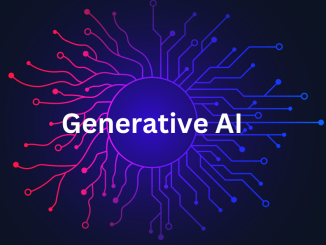
Be the first to comment